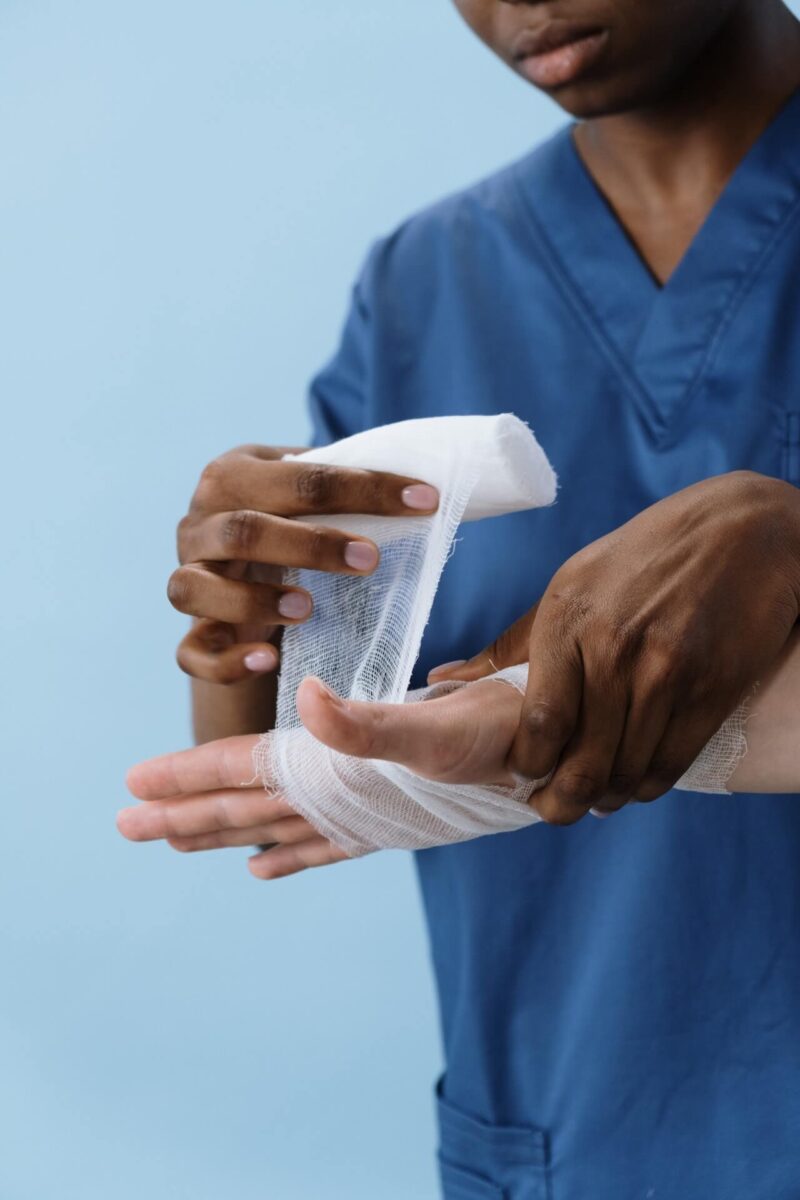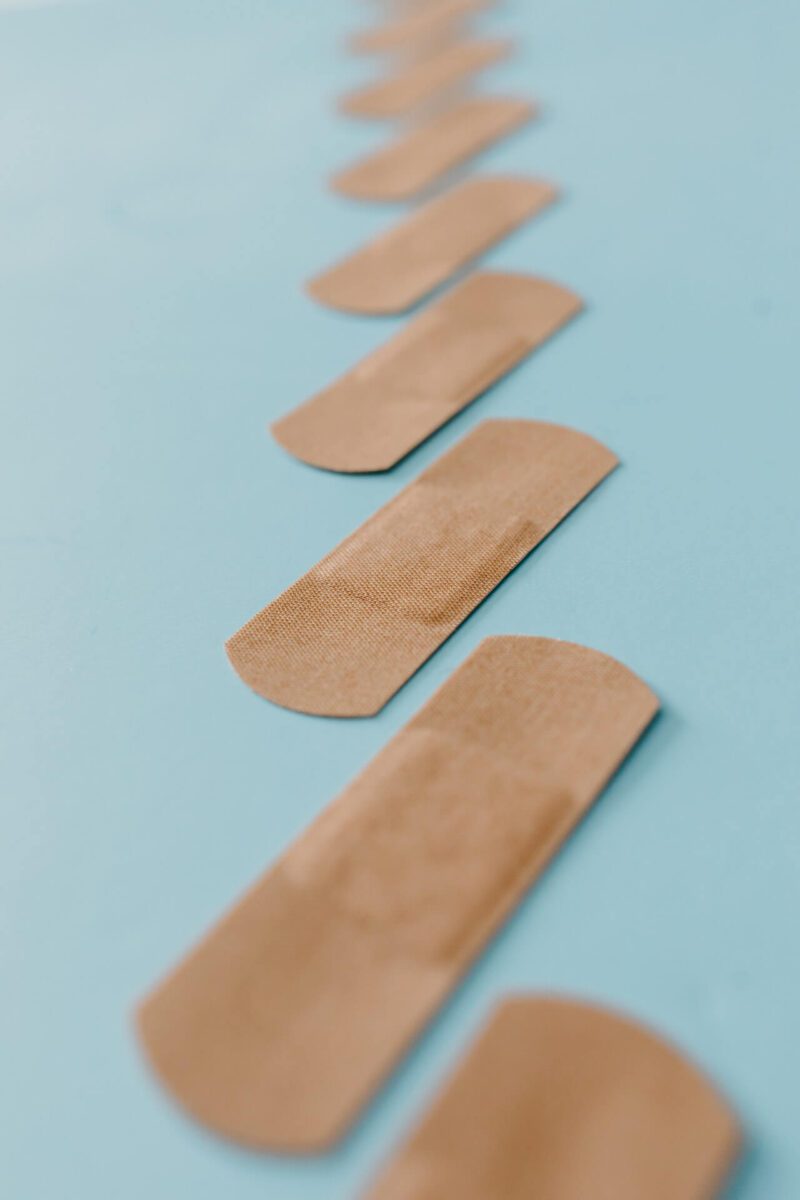Wound Care at Home with UCLAHHC
For patients recovering from injury or surgery, the presence of wounds can be greatly distressing. Even if a patient’s pain is under control, the appearance and feel of a wound can hinder the patient’s recovery. That’s why the patient and her family caregivers must have expert guidance on how to perform wound care at home.
The expert health care workers at UCLAHHC are trained in caring for every possible wound that might afflict our patients: pressure ulcers, surgical wounds, traumatic injuries, burns, infections, and so much else besides. With competent home health care staff, patients do not need to visit the hospital or clinic to receive care. Let us come to you, and we’ll take care of your injuries and educate you and your family about wound care, lessening your discomfort and accelerating your recovery.
The Care Plan
Every patient has different needs. We provide no treatment until we understand the patient’s medical condition, medication, age, mobility level, and anything else that might affect her comfort level and recovery. Wound care is no exception; we must take into account the whole patient and not focus on just the wound itself. It is much more complicated than just changing dressings now and again.
That said, wound care has several broad goals regardless of the patient:
- Maximize comfort. Wounds can be painful, and they can restrict the patient’s range of motion. Pain can be managed with medication and physical therapy, and an expertly applied dressing can limit the inhibitions to a patient’s movement.
- Stop infection. Wounds are prime sites for infection to enter the body, and an infected wound will delay healing and may threaten the patient’s life. But infections are unlikely with proper care. We inspect wounds regularly for signs of infection and intervene quickly at need.
- Prevent hospitalization. With a dedicated home health team, even serious wounds can be competently cared for at home. Patients who can stay at home are more comfortable and can recover faster than hospitalized patients, so we work hard to prevent readmission.
- In home health care, the patient herself and her family caregivers do much of the work, and they are often the first to notice if something is amiss. Our skilled nursing staff will teach the patient and her family how to care for the wound, how to ensure the patient’s safety, and what to do if something seems amiss.
Kinds of Wounds
We’ve all dealt with innumerable small cuts and scrapes throughout our lives, but many kinds of wounds are too complicated for well-meaning family caregivers to look after. Thankfully, the skilled nurses and concierge physicians at healthcare providers like UCLAHHC can provide hospital-level care in the comfort of your own home.
- Infected wounds. Sometimes wounds can become infected despite the best efforts of caregivers. If a wound looks swollen or discolored; if it produces pus, an unpleasant odor, or heat; or if the patient feels nausea, fever, or worsening pain, then it might be infected and should be tended to as soon as possible by a professional caregiver.
- Surgical wounds. Surgeons advise patients on how to care for surgical sites after they return home, but due to the discomforts associated with surgical wounds, at-home caregivers will take special care in looking after such wounds.
- Malignant wounds can happen with certain kinds of cancer, where tumors under the skin break through the surface. These can cause oxygen deprivation in the surrounding tissues, worsening the problem dramatically. They also often have a foul smell, which can be distressing for the patient.
- Venous ulcers happen in the legs of people with poor circulation. They are often intolerably itchy, and scratching will likely worsen the problem. In addition to wound care, a physiotherapist can assign exercises to improve blood flow, lessening the likelihood of such ulcers forming.
- Burns are highly susceptible to infection and often extremely painful. Antibiotic creams are usually given preventively, but recovery is slow. Severe or extensive burns require hospitalization, but lesser burns should still be inspected regularly by a professional.
- Pressure ulcers. A patient with a significant restriction in mobility runs the risk of developing pressure ulcers. Unfortunately, it is often impossible to completely prevent pressure ulcers in bed bound patients, but a home health care plan will involve regularly repositioning the patient and supporting her to minimize the chance of sores.
Preventing Wounds
As much as possible, we educate patients on how to stop wounds from happening or keep an existing wound from getting worse. Prevention can save a lot of pain and discomfort, so part of providing wound care at home involves educating patients and family caregivers.
The home health care plan is not a restricted document, made only for the use of professional caregivers. It is made in consultation with the patient and her family, and for it to be effective, the patient and family must follow it themselves. Sticking to the plan is the best way to prevent infection and encourage healing.
Good hygiene is critical to maintaining health. Regular bathing will reduce the chance of infection, and clean, soft bedsheets and clothes will reduce friction on the skin. Skincare is an oft-overlooked aspect of wound prevention. Elderly patients, especially, often have dry, brittle skin, which is prone to tearing, but even an inexpensive, off-the-shelf moisturizer can make the skin stronger and more elastic.
But recovery itself follows no plan. An accident at home can cause an injury; pressure ulcers happen despite dedicated care; underlying health issues can cause wounds to persist or worsen. Most of the time, the patient or family caregivers are the ones to notice when something is not going to plan, and when that happens, the home health team is available for consultation at all hours. The earlier we know of a problem, the quicker we can work to correct it, so don’t hesitate to let us know of an issue.


